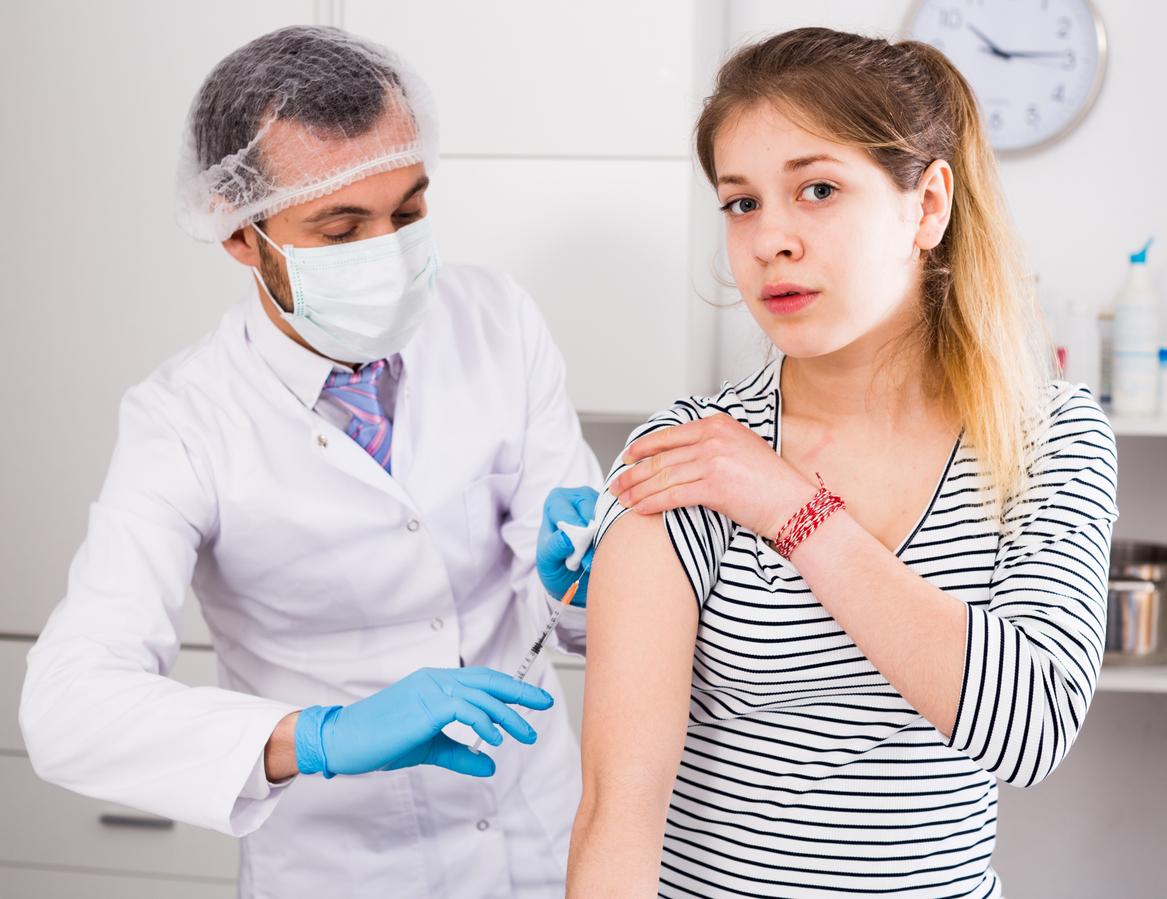The data published regularly by the Medicines Agency (ANSM) and the Health Insurance Fund (CNAM) as part of the study PPE-LIGHTHOUSE show a substantial drop in the number of vaccines dispensed reimbursed in pharmacies. This study assesses 44,000 the number of infants aged 3 to 18 months who have not received a vaccine against diphtheria, tetanus, poliomyelitis, whooping cough, meningitis Haemophilus influenzae type b and hepatitis B.
Remember: two years ago, 11 vaccines were made compulsory for children born from January 11, 2018 – the DT-Polio vaccine (diphtheria, tetanus and poliomyelitis), haemophilus influenzae type B, pertussis , hepatitis B, MMR (measles-mumps-rubella), meningococcus C and pneumococcus.
A beneficial measure since, according to the National Academy of Medicine, it has “significantly improved infant vaccination coverage in 2019, particularly against hepatitis B and against meningitis, significantly reducing the incidence of invasive meningococcal C infections in young infants“.
Vigilance slackened during confinement
Despite the health context, the HAS had recommended from April 1 to maintain all compulsory vaccinations for infants (at 2, 4, 5, 11, 12 and 16-18 months), considering that only those recommended beyond from the age of 2 could be deferred.
Problem : due to the coronavirus epidemic and confinement, vigilance has slackened… “Fear of contagion in waiting rooms, doubts about the effects of vaccination on immunity during a pandemic period, then confinement, led to a sharp drop in vaccinations, mainly among infants” lamented on April 28, the Academy of Medicine in a press release.
Thus, the use of the pentavalent vaccine (which covers diphtheria, tetanus, pertussis, poliomyelitis and Haemophilus Pneumoniae b infections) and the hexavalent vaccine (which adds hepatitis B) fell by approximately 23% in the month from April 2020! “This situation cannot continuecommented then the National Academy of Medicine. Infants must imperatively be vaccinated from the 2nd month, in order to acquire effective protection as soon as possible against frequent and serious diseases at this age.“
How to catch up on vaccinations?
This June 16, HAS publishes a press release, where she invites people who have had to postpone their vaccinations or those of their children and infants, to consult their doctor or pediatrician quickly. In particular infants, children and fragile populations (people with chronic diseases, immunocompromised, elderly, pregnant women, etc.).
She recommends to resume vaccinations without delay and recalls the following points:
- lengthening the time between two injections does not affect the quality of the immune response,
- it is not necessary to resume an interrupted vaccination schedule from the start,
- all the doses already administered must be taken into account and thus only the missing doses and the first booster must be administered,
- the use of combined vaccines is to be preferred and it is possible to perform up to four injections during the same session.
Covid +: get vaccinated anyway?
In normal times (excluding covid), having a cold or having a minor infection even with a little fever is not a reason to postpone a vaccination. Only moderate to severe acute infections should lead to a delay in vaccinations. “In the context of the current epidemic, faced with a patient who presents clinical signs of COVID-19, a PCR diagnostic test must be prescribed” before deciding whether or not vaccination should be postponed, recommends HAS .
- in the event of a negative result, catch-up vaccination begins immediately,
- in the event of a positive result (except in severe cases), the resumption of vaccination may begin as soon as the recovery occurs, once the symptoms have disappeared, i.e. on the 8th day after the onset of the symptoms and at least 48 hours after the fever and any symptoms have disappeared. difficulty breathing.
- For contact persons, the HAS recommends setting up catch-up vaccination at the end of the fortnight if no symptoms have appeared.
Vaccination calendar: when should my child be vaccinated?
- At 2 months of age: diphtheria, tetanus, pertussis, poliomyelitis, Haemophilus influenzae b infections (1st dose) + hepatitis B (1st dose) + pneumococcal infections (1st dose).
- At 4 months of age: diphtheria, tetanus, whooping cough, poliomyelitis, Haemophilus influenzae b infections (2nd dose) + hepatitis B (2nd dose) + pneumococcal infections (2nd dose).
- At 5 months of age: meningococcal C infections (1st dose).
- At 11 months of age: diphtheria, tetanus, whooping cough, poliomyelitis, Haemophilus influenzae b infections (1st booster) + hepatitis B (1st booster) + pneumococcal infections (booster).
- At 12 months of age: measles, mumps, rubella (1st dose) + meningococcal C infections (2nd dose).
- At 16 months: measles, mumps, rubella (2nd dose).
Sources:Pastor InstituteHAS: opinion of June 16, 2020, Academy of Medicine: press release of April 28, 2020.


















